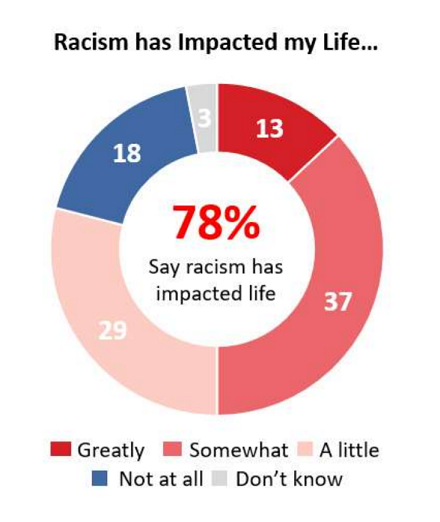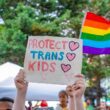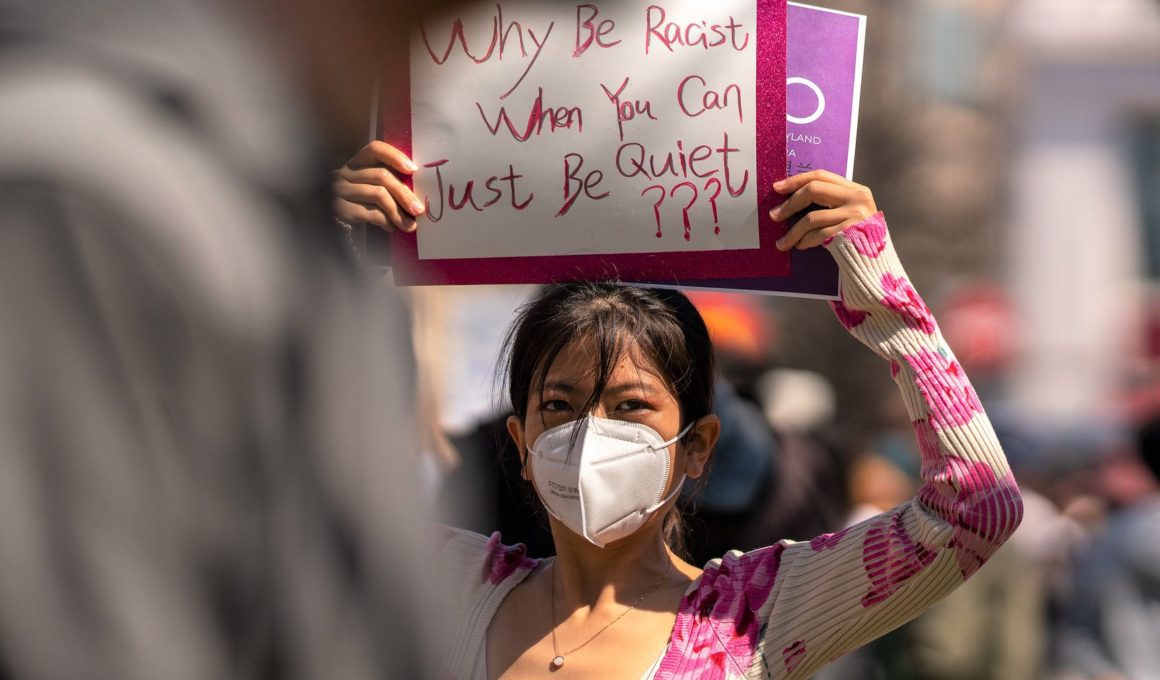Almost four out of five (78%) Asian American Pacific Islander (AAPI) women report that racism has "impacted their lives at least a little," while half (49%) say it has "impacted their lives greatly or somewhat," according to a new poll released Tuesday by the National Asian Pacific American Women’s Forum (NAPAWF).
The landmark study, conducted by The Harris Poll just two weeks before six Asian women were killed in the Atlanta shootings, sheds new light as the nation grapples with the intersections of gender- and race-based violence. Over 3,500 AAPI women were surveyed across the U.S. on a fully representative sample.
In the past two years, 78% of AAPI women had been affected by anti-Asian racism, the poll found. More than half (55%) had personally encountered specific incidences of racism. AAPI women were most likely to self-report anti-Asian racism that involved being called a racial slur (28%), feeling unsafe walking around outside (26%), and experiencing discrimination or harassment at work (18%).


"Almost four out of five [AAPI women] report that racism has impacted their lives at least a little."
— The National Asian Pacific American Women’s Forum
Chinese and Korean Americans (85%) were more likely to say racism has impacted them "at least a little" compared to other ethnic groups.
Asian American women are 2.3 times more likely than men to report hate incidents, according to Stop AAPI Hate.
AAPI women's experiences with racism had a direct influence on their policy priorities, NAPAWF's survey shows. Seven in 10 (69%) said improving measures that protect immigrants from violence is "very or extremely important." That number is even higher among first-time voters (78%), Democrats (77%), South Asian women (77%), and women under 40 (77%).


The study also included a specific deep dive in three swing states: Georgia, Florida, and Texas.
In Georgia, where the AAPI community remains shaken after a white gunman opened fire in Asian-owned spas, AAPI women reported experiencing racism at much higher rates than nationally. Nearly two-thirds of AAPIs in Georgia (66%) reported a racist encounter in recent years. They were also more likely to report violence (17%) or discrimination in the housing market (11%) because of their race or gender.
The poll results are "no surprise," said NAPAWF Executive Director Sung Yeon Choimorrow. "Even before the pandemic and the racist scapegoating that was perpetuated by President Trump and his supporters, AAPI women have long been the targets of ugly racial misogyny and fetishization."
“This is a watershed moment for the United States," she added. "We are demanding to be fully seen and to be heard. The deaths of the six Asian American women in Atlanta, who were the victims of specific racialized gendered violence, were deeply felt by AAPI women across the country who recognized themselves in these women."
The Atlanta shootings weren't an isolated incident, she said. Stop AAPI Hate tracked over 3,800 self-reported incidents of anti-Asian hate from March last year to February. "We demand a response that tackles the sexism and racism that is embedded in our culture and our systems and invests in our community’s well-being for the long term. Anything less is unacceptable, because AAPI women do not lead siloed lives.”
Last week, NAPAWF joined over 180 national organizations in calling on the Biden administration to allocate $300 million to address anti-Asian violence.
The president announced new actions to combat anti-Asian hate on Tuesday, including improved hate crime reporting systems as well as a $49.5 million fund dedicated to community-based, "culturally specific" services for survivors of domestic violence and sexual assault.
Methodology: Respondents either self-identified as AAPI or of any ethnicity/national origin recognized in the Asian race category by the U.S. Census Bureau. Interviews were conducted online and via telephone from Feb. 1 to March 2. Respondents had the option of to completing the survey in English, Mandarin, Korean, or Vietnamese.









